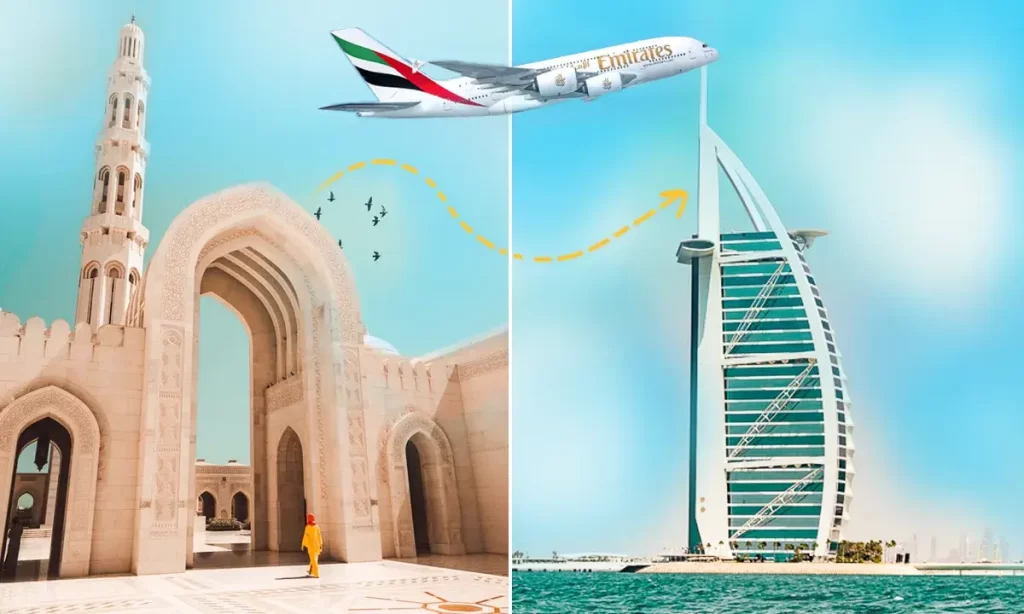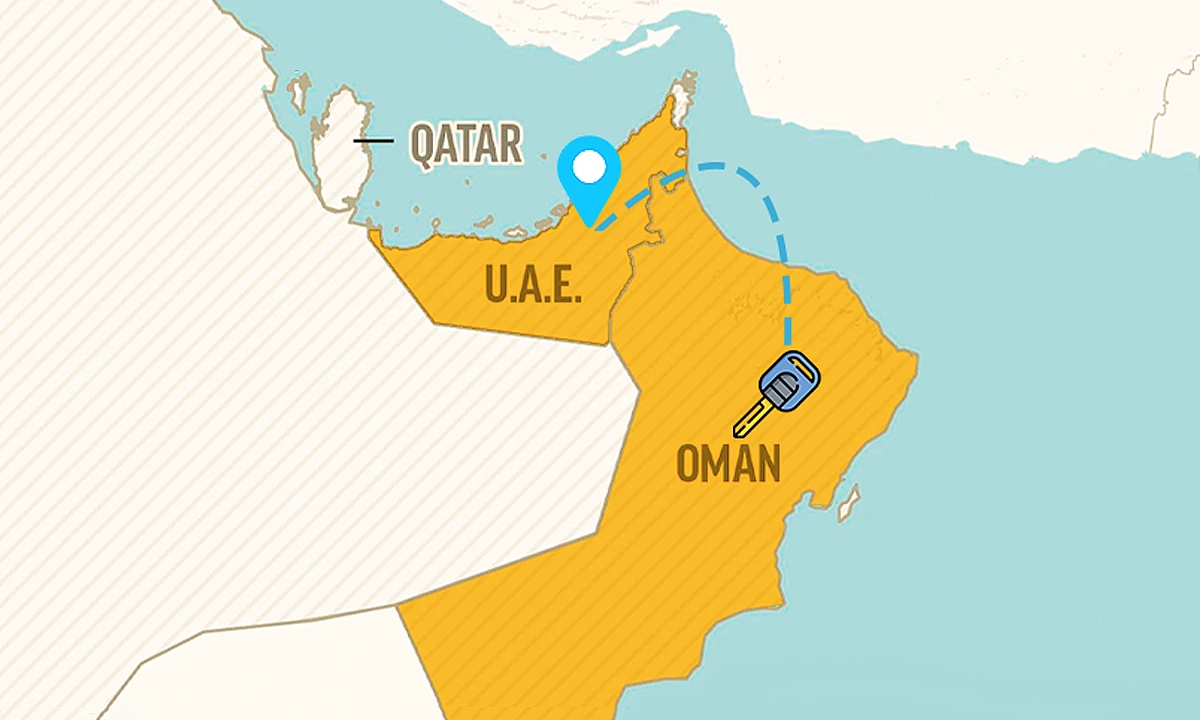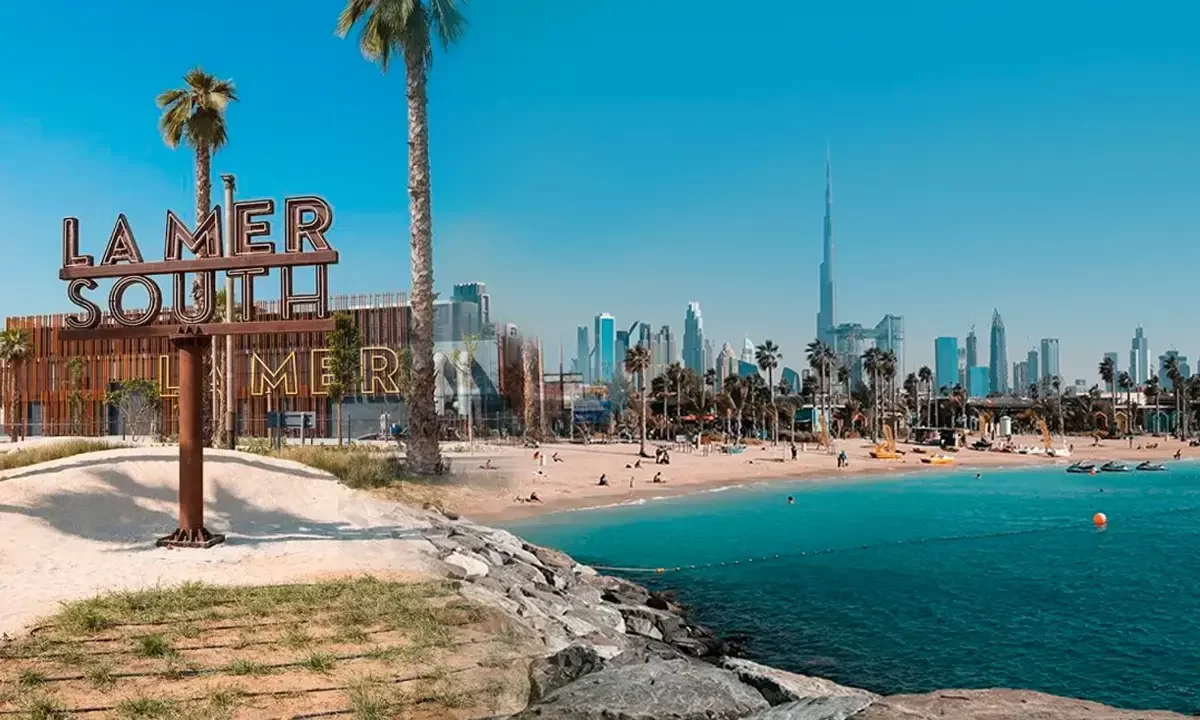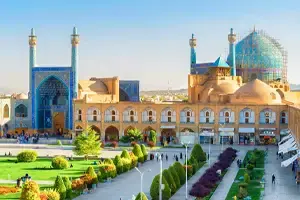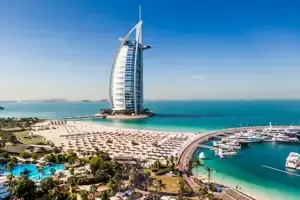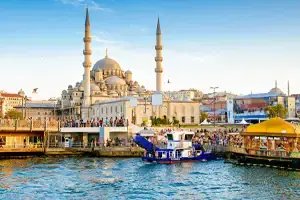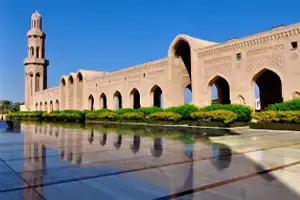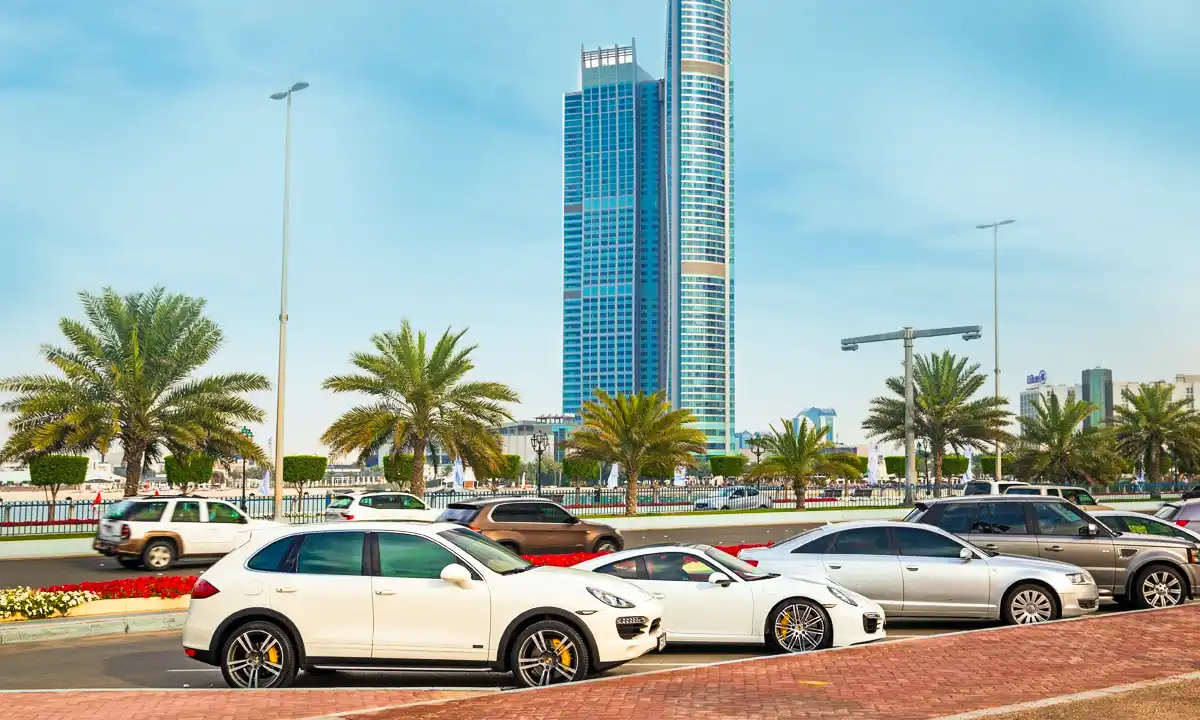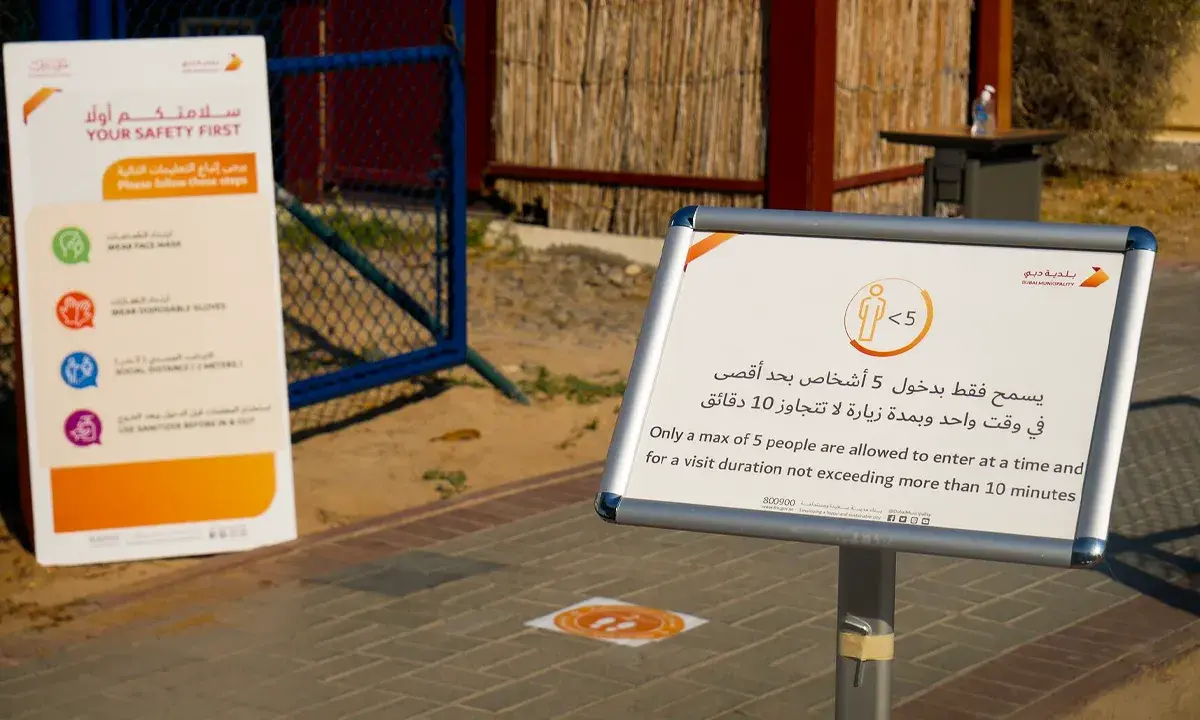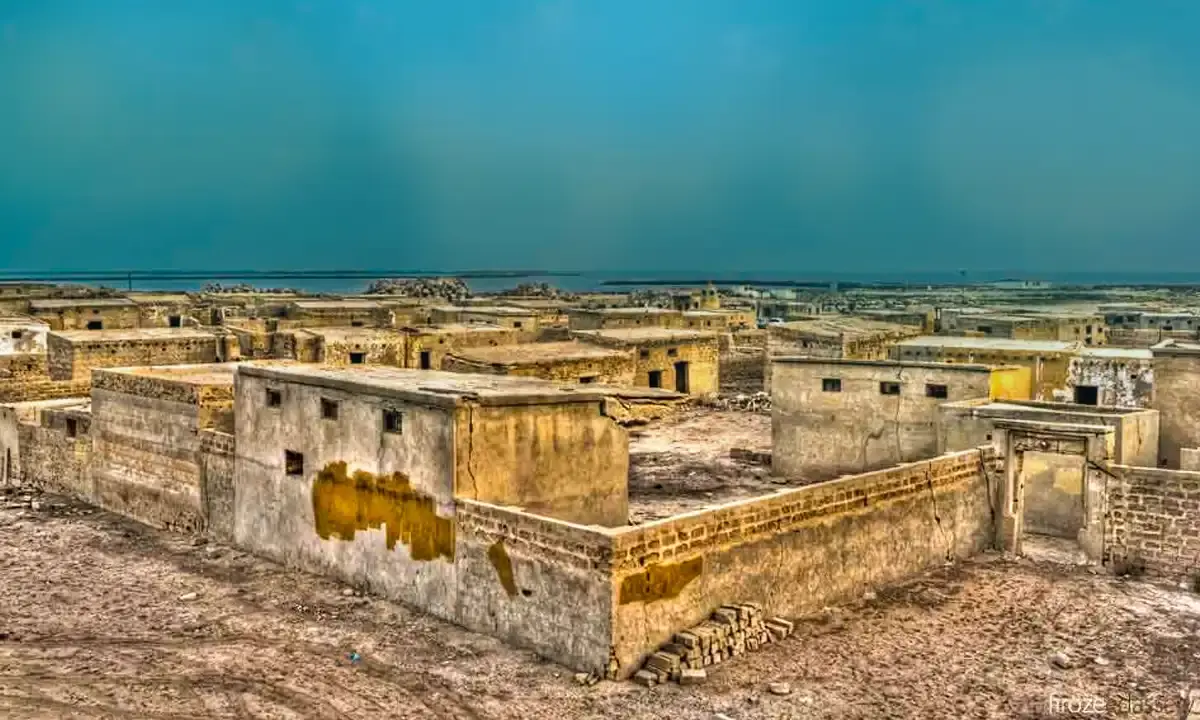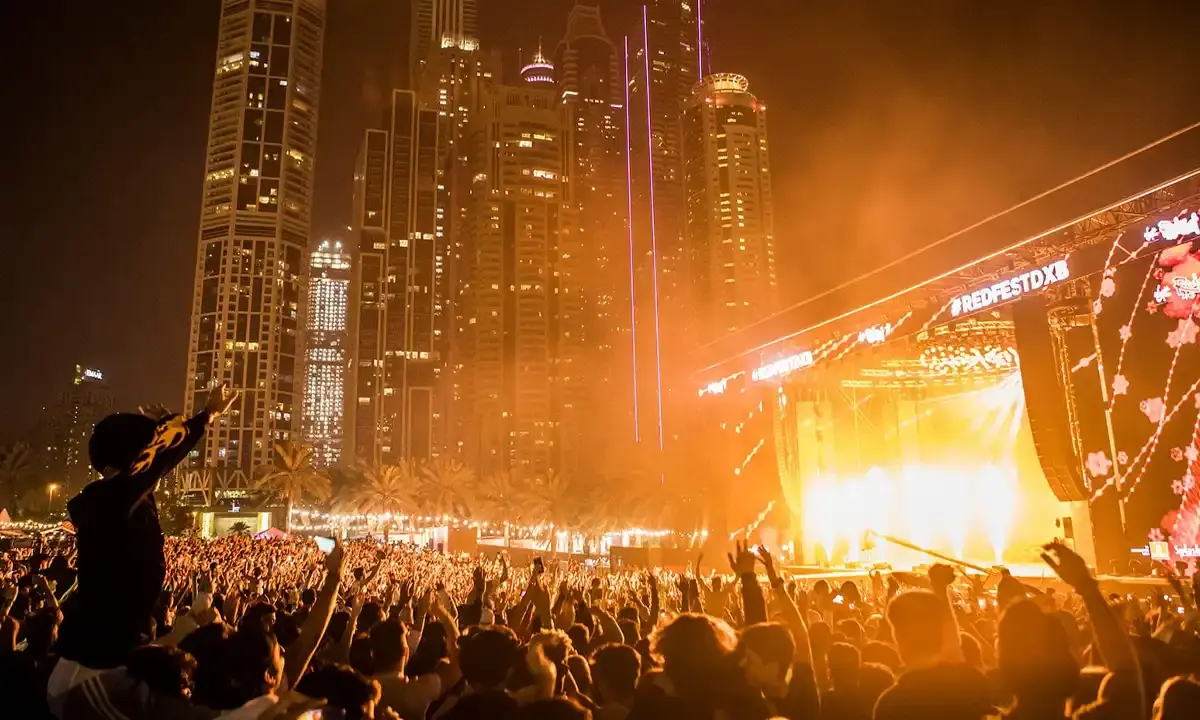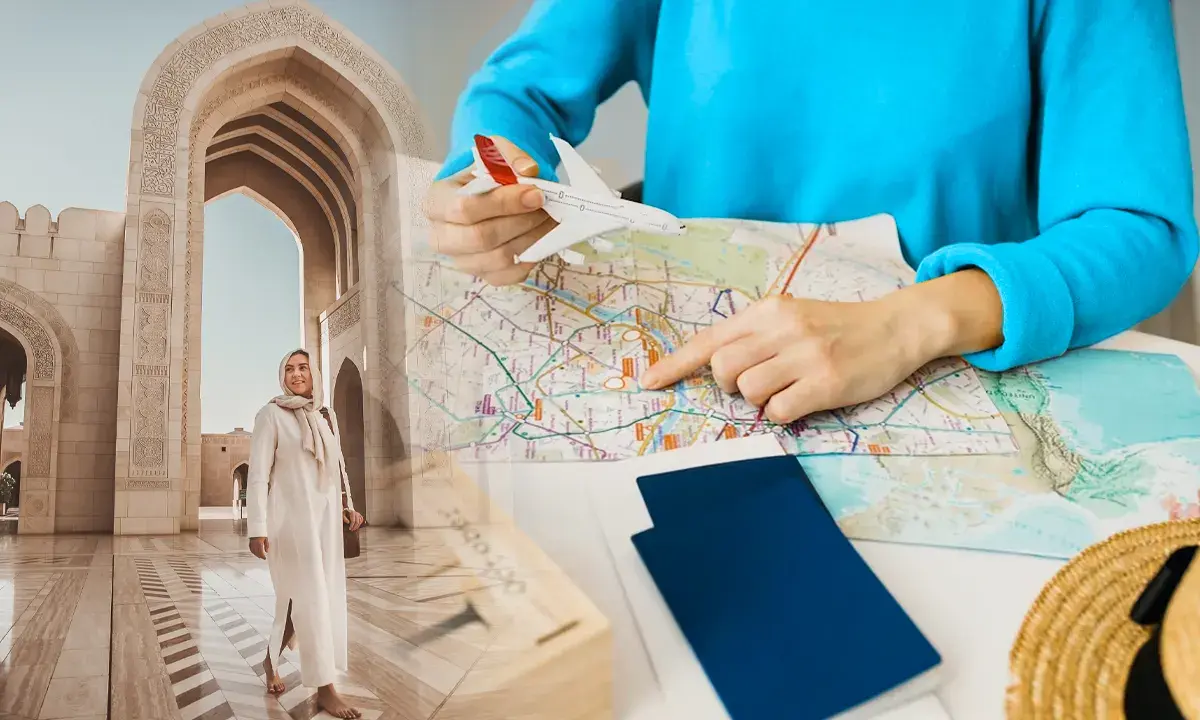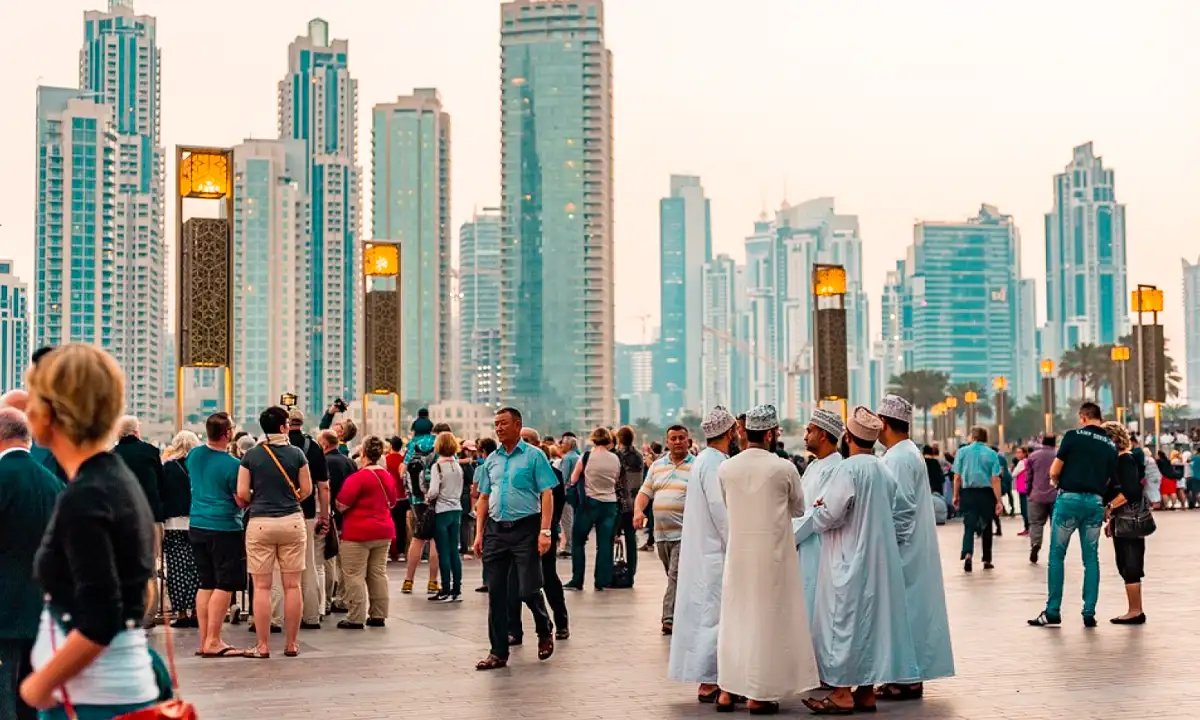Planning a journey from Oman to Dubai is an exciting adventure, offering a vibrant blend of culture, landscapes, and experiences. But before embarking on this epic journey, have you ever wondered, “What’s the best route to take, the visa requirements, or the approximate costs involved?” If you’re curious about the top attractions in both Oman and Dubai or want to know the ideal time to visit, you’ve come to the right place.
This comprehensive travel guide will be your compass, helping you navigate the path from the Sultanate of Oman to the dazzling city of Dubai. We will delve into the intricacies of the travel route, exploring the visa processes and the budget considerations. You’ll discover the must-visit places that will make your journey unforgettable.
But what sets this guide apart is our commitment to cultural immersion. Are you interested in experiencing the local customs and savoring the authentic cuisines along the way? We’ve got you covered, ensuring that your trip is not just a journey but a transformational experience.
So, are you ready to embark on this incredible voyage? Let’s dive into our Oman to Dubai travel guide, where we will unlock the secrets to an unforgettable adventure.
Table of Contents
Your Gateway to Oman to Dubai Travel
Embarking on a journey from Oman to Dubai is a thrilling adventure waiting to unfold. As you set your sights on this remarkable voyage, you’ll undoubtedly have pressing questions: What’s the best route to take, what are the visa requirements, and how much should you budget for this unforgettable experience?
The route you choose will greatly impact your travel experience. You can opt for a road trip through the picturesque Hajar Mountains, reveling in the scenic beauty of both countries. Alternatively, air travel offers swift connections, with several airlines providing convenient flights between Oman and Dubai. Each route has its unique charm, and your choice depends on your preferred mode of travel and the experiences you seek.
Visa requirements are a pivotal aspect of international travel. To cross from Oman to Dubai, you must ensure you have the necessary visas. Fortunately, the two nations offer various visa options, including tourist visas, transit visas, and residency permits. Understanding these requirements and processing times is essential for a smooth transition between these vibrant destinations.
Budget considerations are vital to planning your journey. The costs for traveling from Oman to Dubai can vary significantly based on your chosen route, accommodation preferences, and activities. Generally, setting aside a budget for accommodation, dining, transportation, and excursions is advisable. We’ll delve deeper into cost breakdowns to help you plan your budget effectively.
Your adventure from Oman to Dubai promises diverse experiences, and understanding the best route, visa requirements, and costs will set the stage for a memorable journey filled with discovery and cultural immersion.
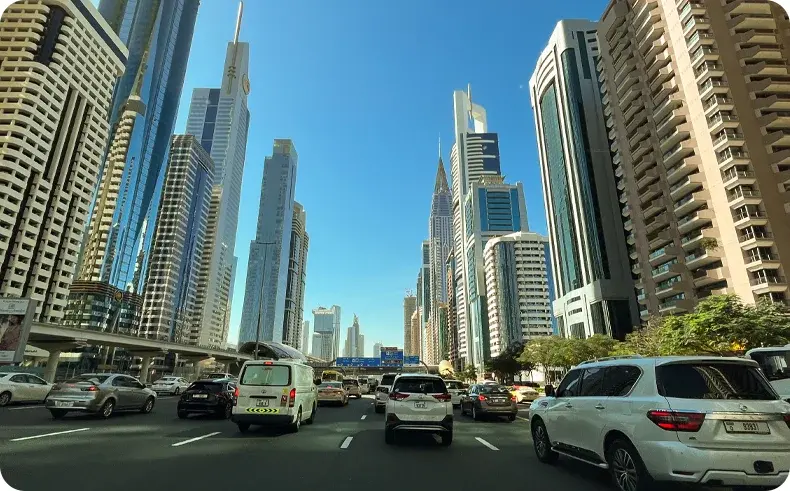
Visa Requirements: Navigating Entry Formalities
Dubai, the bustling financial city of the United Arab Emirates (UAE), welcomes visitors from around the world, each with their unique purpose for traveling. It’s important to note that Dubai has specific rules for the entry of foreigners, and understanding the visa requirements is essential for Oman residents considering a trip to this dynamic city.
Visa-on-Arrival vs. Pre-Arrival Visas:
Visa regulations vary depending on your country of origin. Some foreign nationals enjoy the convenience of obtaining a visa on arrival at Dubai’s airports, while others need to secure a visa before embarking on their journey. Oman residents fall into a special category thanks to Oman’s membership in the Gulf Cooperation Council (GCC).
Visa-Free Entry for Oman Nationals:
Oman, being a GCC member, has a unique advantage. Nationals of GCC states, including Oman, can enter Dubai without a visa. However, there are crucial facts to keep in mind. While a visa isn’t required in advance, you will be asked to provide your GCC country passport upon arrival. If you don’t possess a GCC country passport, your national ID will suffice.
Choice of Visa Types:
For Oman residents visiting Dubai, there are two visa options: the 30-day visa and the 60-day visa. The choice between these options should align with the purpose of your visit. Both visas can be obtained with either your national ID or your GCC country passport.
The 30-day visa offers the flexibility of extending its validity for an additional 30 days, granting you a maximum of 60 days in Dubai. If you plan for a more extended stay in this vibrant city, there’s also the option of a 90-day visa, which you can apply for once you arrive.
Dubai Visa Application Online:
While GCC nationals have visa-free entry, non-citizen residents of Oman and GCC occupants traveling together with non-GCC residents need to apply for Dubai visas online. The application process is straightforward and involves selecting the appropriate visa type. Required documents, such as proof of residence in a GCC state for the last 90 days and a valid passport, are essential.
Transit and Working Visas:
Dubai offers specific visa types to accommodate various needs. The transit visa, valid for 30 days, is perfect for travelers with flight bookings outside of the UAE and lodging reservations in Dubai. For those seeking employment in Dubai, a work visa is required, with the duration contingent on the employment contract.
Working visa applicants must ensure their identity documents are valid for at least six months and provide colored photos. If a change in visa status is needed, supporting documents are crucial, or individuals must leave Dubai before their visa’s expiration.
Navigating Dubai’s visa requirements can seem intricate, but with the right knowledge, Oman residents can plan their visit confidently, ensuring a smooth and memorable experience in this bustling metropolis.
Choosing the Best Route: From Oman to Dubai
When selecting the ideal route from Oman to Dubai, several factors come into play, with price, travel time, and convenience being key considerations. Let’s delve into the various options available, detailing their costs in Emirati Dirhams (AED) and the approximate time it takes to reach Dubai.
Air Travel:
For those who prioritize speed and convenience, flying from Oman to Dubai is a popular choice. The flight duration typically ranges from 1 to 2 hours. Prices can fluctuate depending on factors like the airline, class of service, and the time of booking. On average, an economy class one-way ticket can cost anywhere from 200 AED to 1,000 AED or more. It’s advisable to book in advance and explore various airlines to secure the best deal.
Road Trip:
An adventurous road trip from Oman to Dubai offers a unique experience. The scenic drive through the Hajar Mountains is both breathtaking and immersive. While it may take longer, the journey is a memorable part of the adventure. Fuel costs for a car trip can vary, but a one-way trip may range from 100 AED to 150 AED in fuel expenses, depending on your vehicle’s fuel efficiency. The road trip can take approximately 5 to 7 hours, covering a distance of around 400 kilometers.
Bus Services:
Opting for bus services provides a balance between convenience and cost-effectiveness. The travel time for buses is similar to car trips, taking around 5 to 7 hours. Ticket prices can vary depending on the bus operator, but you can expect to pay around 100 AED to 150 AED for a one-way ticket.
Car Rentals:
Renting a car for the journey offers flexibility and comfort. Prices for car rentals depend on the type of car and the rental agency. On average, renting a standard car for the trip may cost around 250 AED to 350 AED per day. While this option provides flexibility in terms of stops and exploring, the travel time and fuel expenses would be similar to a road trip.
In conclusion, the best route from Oman to Dubai depends on your priorities and preferences. Air travel offers speed but comes with a higher cost. Road trips and bus services are more budget-friendly but require more travel time. Car rentals provide flexibility but come at a moderate cost. Ultimately, your choice should align with your budget, the time you have available, and the experience you seek. Regardless of your chosen route, remember to have the necessary travel documents and visas in order for a smooth transition from Oman to Dubai.
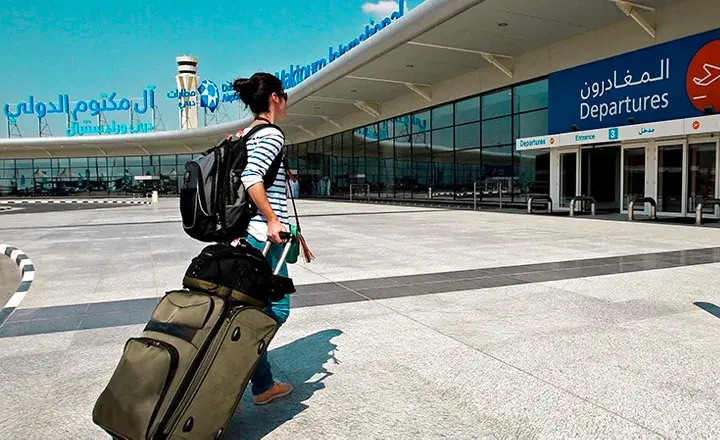
Currency and Financial Essentials for Traveling from Oman to Dubai
For a traveler embarking on a journey from Oman to Dubai, understanding the local currency and financial landscape is essential. In Dubai, the official currency is the United Arab Emirates Dirham, abbreviated as AED. Being prepared with some key currency insights will make your trip more convenient.
The AED is further subdivided into 100 fils, and it comes in both coins and banknotes. Coins are available in denominations of 1, 5, 10, 25, and 50 fils, while banknotes are issued in values of 5, 10, 20, 50, 100, 200, 500, and 1,000 AED. It’s advisable to have a mix of both coins and small denomination notes for everyday expenses.
Exchanging Omani Rials (OMR) for AED can be done at banks, currency exchange offices, and even at the airport. Additionally, ATMs are widely available throughout Dubai, making it easy to withdraw AED directly from your Omani bank account if you have an international debit or credit card. However, be aware of potential ATM fees.
Credit cards are widely accepted in Dubai, with most businesses, hotels, and restaurants taking major international cards like Visa and MasterCard. It’s a convenient way to pay for your expenses and can save you the hassle of carrying too much cash.
While tipping is customary in Dubai, it’s not obligatory. However, if you receive exceptional service, leaving a tip of around 10% is appreciated. Keep in mind that Dubai has a low crime rate, but it’s always wise to safeguard your money and valuables, especially in crowded areas.
Understanding the currency and financial options in Dubai will help you navigate your expenses during your journey, ensuring a smooth and enjoyable visit to this dynamic city.
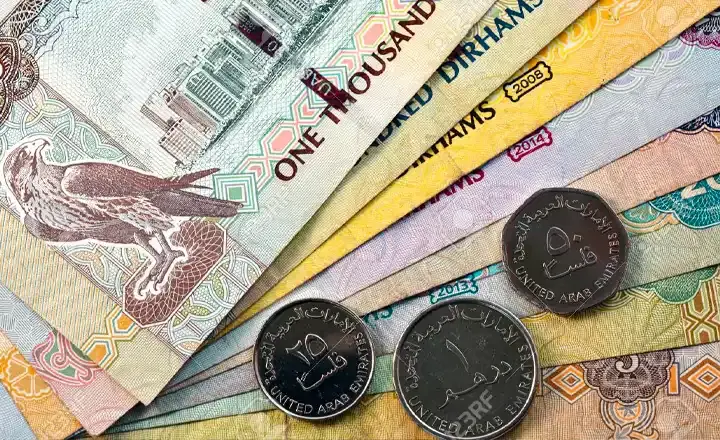
Travel Costs: Budgeting for Your Journey
When planning a journey to Dubai, understanding travel costs is crucial for effective budgeting. Dubai is a destination that caters to a wide range of preferences, from those seeking economical options to those indulging in luxury experiences. Let’s explore the costs of restaurants, hotels, transportation, and groceries in both economical and luxury categories.
Restaurants
Dubai boasts a diverse culinary scene, offering a multitude of dining options. For budget-conscious travelers, inexpensive restaurants provide a great choice with meals averaging around 40.00 AED. However, for those looking for a more upscale dining experience, mid-range restaurants offer three-course meals for two at approximately 250.00 AED, providing a taste of luxury.
Hotels
Dubai’s hotel options are as extravagant as they come, with iconic skyscrapers and opulent resorts dominating the city’s skyline. For travelers seeking affordable accommodations, economical options start at around 150 AED. In contrast, those with a taste for luxury can opt for high-end hotels that can easily exceed 2,000 AED per night, offering world-class amenities and unparalleled service.
Transportation
Dubai’s transportation system is modern and efficient, featuring a variety of options. Economical travelers can rely on affordable local transport, including buses and the metro, with a one-way ticket costing 6.50 AED. Taxis are also readily available but come at a slightly higher cost. For a luxurious transportation experience, private car services and chauffeur-driven vehicles are available, albeit at a higher price point.
Groceries
If you prefer to cook your meals or stock up on essentials during your stay, Dubai offers a wide range of grocery stores. Economical grocery shopping can be done at affordable supermarkets, with prices for staple items like milk, bread, and eggs being comparable to international standards. However, for those with a penchant for luxury groceries, high-end stores offer a selection of imported and gourmet products, albeit at a premium.
Budgeting for your journey to Dubai requires a balance between your preferences and financial capacity. Whether you’re inclined towards economical choices or seeking to revel in luxury, Dubai caters to a wide spectrum of travelers, ensuring a memorable experience tailored to your budget.
Discovering Dubai’s Highlights: Must-See Destinations
Dubai, a city of futuristic skyscrapers and rich traditions, offers a treasure trove of must-see destinations for travelers. Here are some highlights that you shouldn’t miss on your visit to this vibrant metropolis.
- Burj Khalifa: Standing as the world’s tallest building, the Burj Khalifa is an iconic symbol of Dubai. Take an elevator ride to the observation deck on the 148th floor to witness breathtaking panoramic views of the city and the surrounding desert.
- The Dubai Mall: Adjacent to the Burj Khalifa, this colossal shopping and entertainment complex is a paradise for shoppers. Explore high-end boutiques, enjoy the indoor ice rink, and marvel at the giant aquarium.
- The Palm Jumeirah: A man-made island shaped like a palm tree, it’s home to luxurious resorts, stunning beaches, and the famous Atlantis, The Palm hotel.
- Desert Safaris: Venture into the desert for an exhilarating experience. Enjoy dune bashing, camel riding, and a mesmerizing desert sunset followed by a traditional Bedouin dinner under the stars.
- Dubai Creek: Explore the city’s historical heart at Dubai Creek. Visit the Dubai Museum, take an abra (traditional wooden boat) ride, and wander through the bustling souks.
- Jumeirah Mosque: This stunning mosque is one of the few in Dubai open to non-Muslims. Its architecture and cultural insights make it a worthwhile visit.
- Dubai Marina: A modern waterfront district offering a contrast to the city’s traditional areas. Enjoy dining at chic restaurants, take a boat tour, or stroll along the promenade.
- Bastakiya Quarter: A glimpse into Dubai’s past, with well-preserved wind-tower architecture, art galleries, and cozy cafes.
Dubai’s diverse attractions ensure there’s something for everyone, from architectural marvels to cultural gems. These highlights are just the beginning of your journey in this remarkable city.
The Perfect Timing: When to Visit Dubai
Dubai, a city of endless wonders and incredible experiences, can be enjoyed year-round, but the timing of your visit can significantly impact your experience. Here’s a guide to help you choose the perfect time to explore this dazzling city.
Winter Wonderland (November to April):
Dubai’s peak tourist season, winter offers the most pleasant weather with average temperatures ranging from 73°F to 86°F (23°C to 30°C). This is the ideal time for outdoor activities, beach relaxation, and exploring the city’s attractions comfortably.
Festive Season (December to January):
Dubai transforms into a magical wonderland during the holiday season. The city comes alive with stunning decorations, festive markets, and a grand New Year’s Eve celebration, including the world-famous fireworks at the Burj Khalifa.
Shoulder Seasons (May to September):
Dubai’s summer is known for scorching temperatures, often exceeding 104°F (40°C). While this is the off-peak season due to the heat, it’s also when you can find the best hotel deals. If you don’t mind the heat, you can explore indoor attractions and relax by hotel pools.
Dubai Shopping Festival (January to February):
A shopper’s paradise, this annual event offers fantastic discounts and promotions, making it a great time for retail therapy.
Choosing the right time to visit Dubai depends on your preferences. If you want to avoid extreme heat and enjoy outdoor activities, the winter months are perfect. If you’re on a budget and can handle the heat, the summer season offers great deals. Ultimately, Dubai’s charm is ever-present, no matter when you choose to visit.
Festivals and Events: Adding Spice to Your Travel in Dubai
Dubai, a city known for its opulence and vibrancy, offers a plethora of festivals and events throughout the year that can add a dash of excitement and cultural immersion to your travel experience. Here are some of the top festivals and events to consider when planning your visit to this dynamic city:
- Dubai Shopping Festival (DSF): Kicking off the year in style, DSF, usually held in January and February, is a shopping extravaganza. The city transforms into a shopper’s paradise with massive discounts, raffles, and entertainment. It’s the perfect time to indulge in retail therapy.
- Dubai Food Festival: If you’re a food enthusiast, the Dubai Food Festival in February and March is a must-attend event. It showcases the city’s diverse culinary scene, from street food to gourmet dining, and features food trucks, celebrity chefs, and delicious tastings.
- Dubai International Film Festival (DIFF): Film buffs can revel in the Dubai International Film Festival, which usually takes place in December. It’s a platform for both regional and international cinema, attracting renowned filmmakers, actors, and film enthusiasts.
- Eid Al-Fitr and Eid Al-Adha: These two significant Islamic festivals are celebrated with great pomp and grandeur in Dubai. Visitors can witness traditional prayers, feasts, and stunning fireworks displays. The dates of these festivals change each year, so it’s important to check the lunar calendar.
- Dubai World Cup: For horse racing enthusiasts, the Dubai World Cup in March is a premier event in the horse racing calendar. It features high-stakes races, glamorous fashion, and a vibrant atmosphere.
Dubai’s festival calendar offers a unique blend of entertainment, culture, and indulgence, making it an ideal destination for travelers seeking memorable experiences. Whether you’re a shopaholic, a foodie, a film lover, or simply looking to immerse yourself in local culture, Dubai has something for everyone year-round.
Cultural Insights: Understanding Local Traditions in Dubai
Dubai, a city where tradition meets modernity, offers a fascinating tapestry of local customs and cultural practices. Understanding these traditions is key to a richer travel experience:
- Dress Code: While Dubai is cosmopolitan, it respects conservative Islamic values. It’s advisable to dress modestly, especially when visiting religious sites. For men, long pants and shirts are suitable, and women should cover their shoulders and knees. Swimwear is acceptable at the beach or poolside.
- Greetings: Traditional Arabic greetings involve a warm handshake and the common phrase “As-salamu alaykum” meaning “Peace be upon you.” It’s customary to use honorific titles and first names when addressing Emiratis, while expatriates typically use their first names.
- Ramadan: Ramadan is a significant month in the Islamic calendar. During this period, Muslims fast from sunrise to sunset, and non-Muslims should avoid eating, drinking, or smoking in public during daylight hours out of respect. It’s also a time for charity and reflection.
- Friday Mosque Visit: The Jumeirah Mosque welcomes non-Muslim visitors for a better understanding of Islamic culture. Tours provide insights into religious practices, architecture, and daily life.
- Haggling: Bargaining is common in traditional markets, or souks. While it’s not typically done in modern shopping malls, it can be an enjoyable cultural exchange when purchasing goods from local vendors.
Respecting these local traditions not only enhances your trip but also fosters a deeper connection with the warm and welcoming people of Dubai. It’s a place where ancient customs coexist harmoniously with a rapidly evolving metropolis, creating a unique cultural experience for travelers.
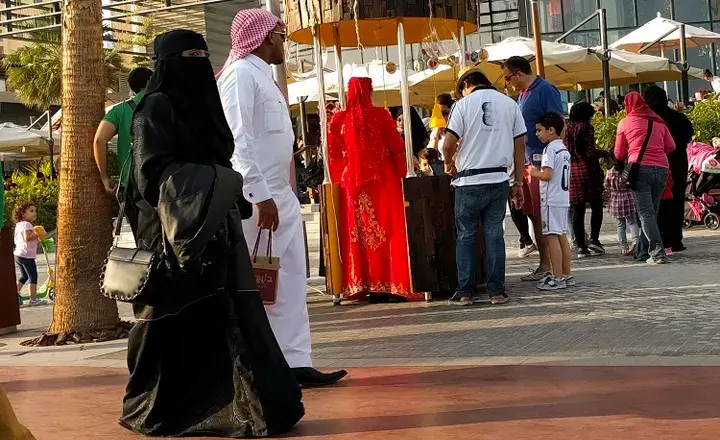
Delicious Dining: Savoring Local Cuisines in Dubai
Dubai’s culinary scene is a vibrant tapestry of flavors, blending traditional Emirati dishes with international influences. Exploring the local cuisines is a delightful journey for your taste buds:
- Emirati Delights: Start with the traditional Emirati cuisine, which is a testament to the region’s rich heritage. Don’t miss dishes like Al Harees (a slow-cooked porridge of wheat and meat), Al Machboos (spiced rice with meat or fish), and Al Madrooba (a hearty chicken stew). These dishes showcase the flavors and aromas of the Arabian Peninsula.
- Street Food: Dubai’s bustling streets are adorned with street food vendors offering shawarma, falafel, and manakish (a Lebanese flatbread topped with various ingredients). These affordable treats are not only delicious but also a part of the city’s cultural fabric.
- Global Fusion: Dubai is a melting pot of cultures, and its dining scene reflects this diversity. You can savor everything from Indian, Iranian, and Lebanese to Japanese, Chinese, and European cuisines. The city’s international restaurants are world-class, offering a wide range of options for every palate.
- Seafood Extravaganza: With its proximity to the Persian Gulf, Dubai is a seafood lover’s paradise. Enjoy freshly caught fish and prawns prepared with Middle Eastern spices, providing a unique taste that’s hard to replicate elsewhere.
- Sweet Treats: Satisfy your sweet tooth with Arabic desserts like baklava, knafeh, and luqaimat, bite-sized sweet dumplings drizzled with date syrup or honey. They make for the perfect ending to a sumptuous meal.
- Arabic Coffee and Dates: Don’t forget to experience the Emirati hospitality with a cup of Arabic coffee (Gahwa) served with sweet dates. This is a traditional gesture of welcoming guests and a delicious way to connect with local customs.
Dubai’s culinary landscape is a true reflection of the city itself, offering a mix of tradition and innovation that caters to all tastes. Whether you’re savoring local Emirati dishes or indulging in international cuisine, the dining experience in Dubai is a memorable and culturally enriching adventure.
Shopping in Dubai: Souvenirs and Bargains
Dubai, known as a shopper’s paradise, offers a myriad of experiences for those seeking souvenirs and bargains. Here’s a glimpse into the city’s shopping scene:
- Traditional Souks: Start your shopping adventure at the traditional souks. The Gold Souk, Spice Souk, and Textile Souk are must-visit destinations. The Gold Souk, in particular, showcases intricate jewelry pieces, and the Spice Souk envelops you in a symphony of aromas. These markets are great for finding unique souvenirs.
- Modern Malls: Dubai is home to some of the world’s most extravagant malls. The Dubai Mall and Mall of the Emirates offer a vast array of international brands and designer stores. Apart from shopping, they provide entertainment and dining options, making them a one-stop destination for all your needs.
- Bargaining: In traditional markets like the Textile Souk and the Deira Covered Souk, haggling over prices is common. Be prepared to negotiate to get the best deals on textiles, spices, and other items. It’s all part of the fun of shopping in Dubai.
- Luxury Shopping: For high-end shopping, head to the luxury boutiques in the Fashion Avenue of The Dubai Mall or explore The Avenue at Etihad Towers. These establishments feature renowned fashion houses and premium brands, offering the latest in haute couture.
- Souvenirs: When it comes to souvenirs, consider buying traditional Emirati items like perfumes, intricate carpets, local handicrafts, or camel-themed mementos. These unique treasures allow you to take a piece of Dubai’s culture back home.
- Electronic Gadgets: Dubai is known for its competitive prices on electronic gadgets. Retailers in places like Al Fahidi Street offer a wide range of products, from the latest smartphones to camera equipment.
- Dubai Shopping Festival: If your visit coincides with the annual Dubai Shopping Festival, you’re in for a treat. This month-long extravaganza features unbeatable discounts, raffles, and entertainment, making it an ideal time for shopping.
Dubai’s shopping landscape caters to all tastes and budgets, whether you’re seeking traditional souvenirs, luxury brands, or electronics. The city’s markets and malls ensure a shopping experience that’s as diverse and dynamic as the city itself.
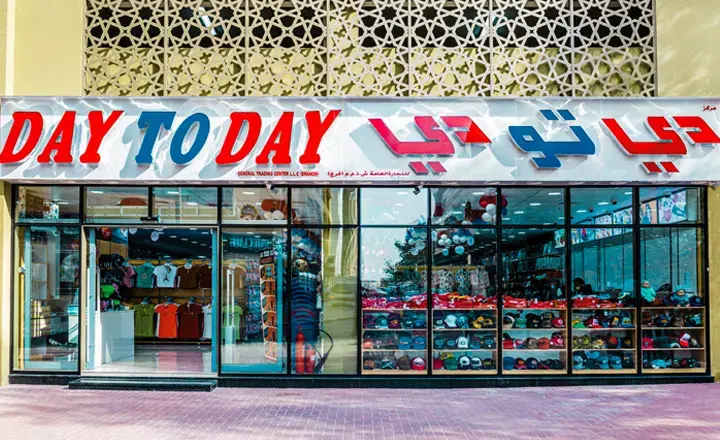
Accommodation Options: Finding Your Ideal Stay in Dubai
Dubai, a city known for its opulence and luxury, offers a wide range of accommodation options to suit every traveler’s preference and budget. Whether you’re seeking a lavish stay in a world-class hotel or a more budget-friendly option, Dubai has it all.
Luxury Hotels:
For those looking to indulge, Dubai’s luxury hotels set the standard. Iconic names like the Burj Al Arab Jumeirah, Atlantis the Palm, and the Armani Hotel Dubai are synonymous with extravagance. Prices at these establishments can range from 1,500 AED to 4,000 AED or more per night. Staying in one of these properties is an experience in itself.
Business Hotels:
Dubai is a major business hub, and as such, it boasts a plethora of business hotels. These establishments cater to the needs of corporate travelers with well-equipped meeting rooms, high-speed internet, and executive lounges. The Conrad Dubai and the Jumeirah Emirates Towers offer rooms starting from around 500 AED per night.
Budget Accommodations:
Dubai doesn’t only cater to the affluent; it offers budget-friendly options as well. You can find affordable guesthouses, hostels, and budget hotels in areas like Deira and Bur Dubai. Prices for these options typically range from 150 AED to 350 AED per night. While the price may be modest, these accommodations often provide clean and comfortable stays.
Serviced Apartments:
Ideal for longer stays, serviced apartments offer the comforts of home. You’ll have a fully equipped kitchen, a living area, and often, access to hotel amenities. The Marina View Hotel Apartments and the Dusit Residence Dubai Marina offer competitive rates for these apartment-style stays.
Desert Resorts:
For a unique experience, consider staying at one of Dubai’s desert resorts. These secluded retreats offer a serene escape from the city’s hustle and bustle. The Bab Al Shams Desert Resort & Spa and the Al Maha, a Luxury Collection Desert Resort & Spa, offer rates starting from approximately 1,000 AED per night.
Airbnb and Vacation Rentals:
Dubai also has a thriving market for vacation rentals and Airbnb properties. This option provides flexibility and a chance to experience the city like a local. Prices for Airbnb and vacation rentals vary widely depending on the type and location, but you can find options to fit various budgets.
Beachfront Hotels:
With its stunning coastline, Dubai boasts a variety of beachfront hotels. These properties offer immediate access to the sea, as well as picturesque views. Jumeirah Beach Hotel and Madinat Jumeirah, with its private beach and waterways, offer rates that start at around 800 AED per night.
When choosing your accommodation in Dubai, consider your budget, the purpose of your visit, and your personal preferences. The city’s diverse range of options ensures that every traveler can find their ideal place to stay, making their Dubai experience truly memorable.
Health and Safety Tips: Staying Well-Informed
When traveling to Dubai, ensuring your health and safety is of paramount importance. Here are some key tips to keep in mind:
- Health Precautions: Dubai maintains high health and hygiene standards. Tap water is safe to drink, and the local healthcare system is top-notch. However, it’s advisable for travelers to have comprehensive travel insurance to cover any unexpected medical expenses.
- Vaccinations: Check with your local health authorities for recommended vaccinations before traveling to Dubai. Common vaccines include Hepatitis A and B, Typhoid, and routine vaccines. Dubai’s Ministry of Health and Prevention provides guidance on necessary health precautions.
- Sun Protection: Dubai is known for its scorching desert sun. Protect yourself from sunburn by wearing sunscreen, sunglasses, and a wide-brimmed hat. Stay hydrated and seek shade during the hottest parts of the day.
- Respect Local Laws and Customs: Dubai is a place where traditional Islamic customs are upheld. Dress modestly, particularly when visiting religious sites, and avoid public displays of affection. Alcohol is available in designated areas, but public intoxication is illegal.
- Travel Insurance: Invest in a comprehensive travel insurance plan that covers medical emergencies, trip cancellations, and other unforeseen situations. It provides peace of mind and financial protection during your journey.
- Emergency Services: Familiarize yourself with Dubai’s emergency contact numbers, including 999 for police, 998 for ambulance services, and 997 for fire emergencies. Dubai’s emergency response is efficient and reliable.
By staying well-informed and abiding by local customs and regulations, you can enjoy a safe and healthy visit to Dubai, one of the world’s most exciting destinations.
Transportation in Dubai: Getting Around
Transportation in Dubai offers a range of options for getting around the city efficiently. Here are some key methods of transportation to make your journey in Dubai smooth:
- Metro: Dubai’s modern and extensive metro system is one of the most convenient ways to get around. It connects major areas of the city and is clean and efficient.
- Taxis: Taxis are widely available and easily recognizable with their cream color. They are a convenient way to travel if you need to reach a specific destination quickly.
- Buses: Dubai’s bus network covers most parts of the city. The buses are air-conditioned and offer a cost-effective means of transportation.
- Trams: The Dubai Tram runs along the city’s coastline, serving popular areas like Dubai Marina and Jumeirah Beach Residence.
- Water Taxis and Ferries: Dubai’s water transport system includes abras (traditional wooden boats) and water buses. These are a unique way to cross the Dubai Creek and explore the historic areas.
- Ride-Sharing Apps: Services like Uber and local equivalent Careem are available in Dubai, providing a convenient and often more cost-effective alternative to traditional taxis.
- Car Rentals: If you prefer to drive, you can easily rent a car in Dubai. However, be aware of the city’s traffic rules and parking regulations.
- Cycling: Dubai is becoming more cycle-friendly with dedicated bike lanes in some areas. Many hotels also offer bicycles for guests.
- Walking: Some areas of Dubai, especially in the downtown and beachfront areas, are pedestrian-friendly. Walking can be a pleasant way to explore the city.
- Monorail: The Palm Jumeirah Monorail is a unique transportation option that connects the mainland to the Palm Jumeirah.
Dubai’s transportation infrastructure is well-developed, making it easy to navigate the city and explore its many attractions. Whether you prefer the modern metro, traditional water taxis, or ride-sharing apps, you’ll find a transportation option that suits your needs.
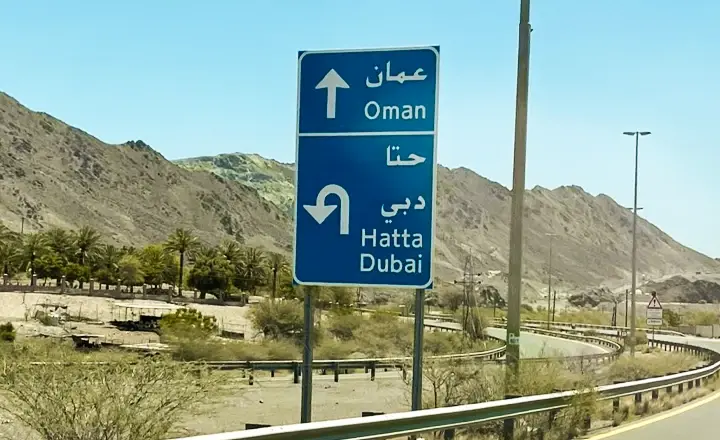
Introducing Saadatrent: Your Premier Car Rental Partner in Dubai
While Dubai offers a multitude of transportation options to explore its vibrant streets, there’s one mode of travel that combines freedom, comfort, and convenience – renting a car. And when it comes to car rentals in Dubai, Saadatrent stands out as your trusted partner.
Why Choose Saadatrent?
- Diverse Fleet: At Saadatrent, we understand that each traveler’s needs are unique. Our extensive fleet includes a wide range of vehicles, from compact and economical cars to luxurious and spacious SUVs. Whatever your preference or group size, we have the perfect ride for you.
- Competitive Pricing: We believe that quality car rental should be affordable. With Saadatrent, you can expect competitive rates without hidden fees, ensuring you get the best value for your money.
- User-Friendly Booking: We’ve made the booking process simple and convenient. Our online platform allows you to choose your ideal car, select the rental duration, and make secure payments. Plus, we offer flexible pick-up and drop-off locations, including Dubai International Airport, making your arrival and departure seamless.
- Exceptional Service: Our commitment to customer satisfaction sets us apart. The Saadatrent team is dedicated to providing top-notch service, ensuring your rental experience is hassle-free and enjoyable. We’re here to assist you 24/7, so you can focus on making the most of your Dubai adventure.
- Comprehensive Coverage: Your safety is our priority. All our rental vehicles come with comprehensive insurance coverage, giving you peace of mind while exploring Dubai’s exciting streets and attractions.
With Saadatrent, your Dubai exploration becomes an unforgettable journey. Enjoy the freedom to explore the city at your own pace, visit iconic landmarks, and create lasting memories, all with the comfort and reliability of a Saadatrent rental car. Make your Dubai experience extraordinary – choose Saadatrent as your car rental partner.
Last Words
This comprehensive Oman to Dubai travel guide has provided you with valuable insights to make your journey a seamless and unforgettable experience. As you embark on this adventure, it’s essential to budget wisely. The total cost of travel from Oman to Dubai can vary depending on your preferences.
For the budget-conscious traveler, you can expect to spend around 400 AED to 600 AED per day, covering accommodation, meals, transportation, and some leisure activities. This estimate includes staying in mid-range hotels, dining at local restaurants, and using public transportation.
If you’re looking for a more luxurious experience, the cost can rise to 1,000 AED to 2,000 AED per day or more. This range allows for stays in upscale hotels, fine dining at renowned restaurants, and indulging in high-end activities and attractions.
Remember that Dubai offers a wide range of choices, and your total cost will ultimately depend on your personal preferences and how you choose to experience this vibrant city.
Whichever option you select, Dubai’s enchanting blend of modernity and tradition, its iconic landmarks, delectable cuisine, and warm hospitality, ensures that your journey from Oman to Dubai will be a remarkable and rewarding one. Safe travels and enjoy your Dubai adventure!
What's the estimated daily budget for a trip from Oman to Dubai?
For budget-conscious travelers, daily expenses range from 400 to 600 AED, covering mid-range hotel stays, local dining, and public transportation. Those seeking a luxurious experience can expect to spend 1,000 to 2,000 AED per day or more, indulging in upscale hotels, renowned restaurants, and high-end activities and attractions.
Are there budget-friendly accommodation options in Dubai?
Absolutely, Dubai caters to budget-conscious travelers with affordable guesthouses, hostels, and budget hotels, primarily in areas like Deira and Bur Dubai. Prices typically range from 150 AED to 350 AED per night.
Do Oman residents need a visa to enter Dubai?
Oman residents are generally exempt from obtaining a visa to enter Dubai, thanks to Oman’s membership in the Gulf Cooperation Council (GCC). They can enter Dubai with either a GCC country passport or a national ID.
How much does an economy class one-way flight from Oman to Dubai cost on average?
On average, an economy class one-way flight ticket from Oman to Dubai can cost anywhere from 200 AED to 1,000 AED or more, depending on factors like the airline and the time of booking.
What's the approximate travel time for a road trip from Oman to Dubai, and how much does it cost in terms of fuel expenses?
A road trip from Oman to Dubai can take approximately 5 to 7 hours, covering a distance of around 400 kilometers. Fuel expenses for the one-way trip may range from 100 AED to 150 AED, depending on your vehicle’s fuel efficiency.
